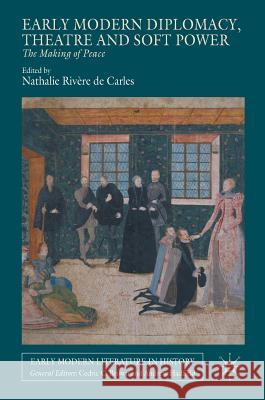Early Modern Diplomacy, Theatre and Soft Power: The Making of Peace » książka
topmenu
Early Modern Diplomacy, Theatre and Soft Power: The Making of Peace
ISBN-13: 9781137436924 / Angielski / Twarda / 2016 / 239 str.
Kategorie:
Kategorie BISAC:
Wydawca:
Palgrave MacMillan
Seria wydawnicza:
Język:
Angielski
ISBN-13:
9781137436924
Rok wydania:
2016
Wydanie:
2016
Numer serii:
000030930
Ilość stron:
239
Waga:
0.43 kg
Wymiary:
21.08 x 15.24 x 2.03
Oprawa:
Twarda
Wolumenów:
01
Dodatkowe informacje:
Bibliografia
Wydanie ilustrowane
Wydanie ilustrowane











